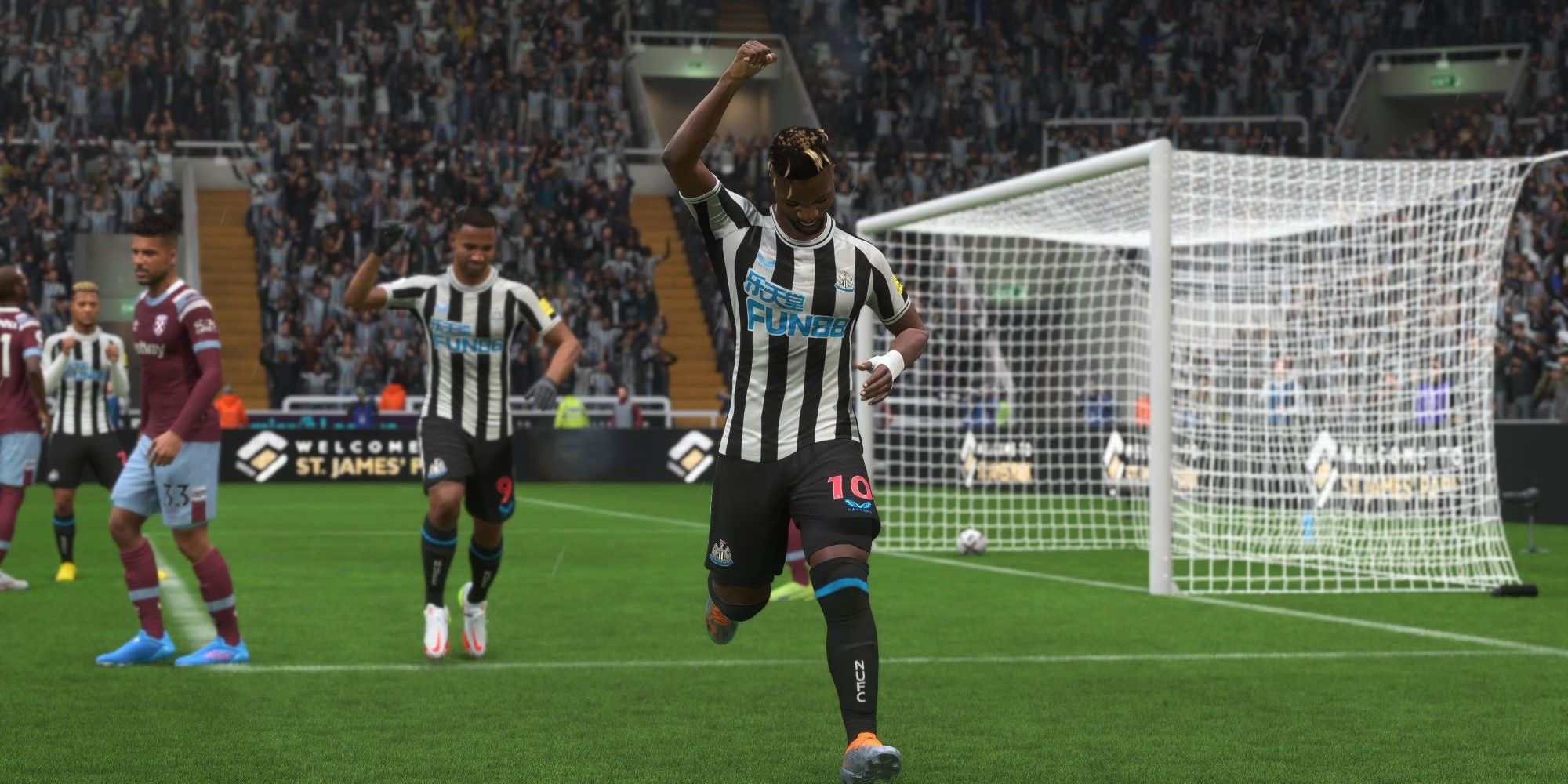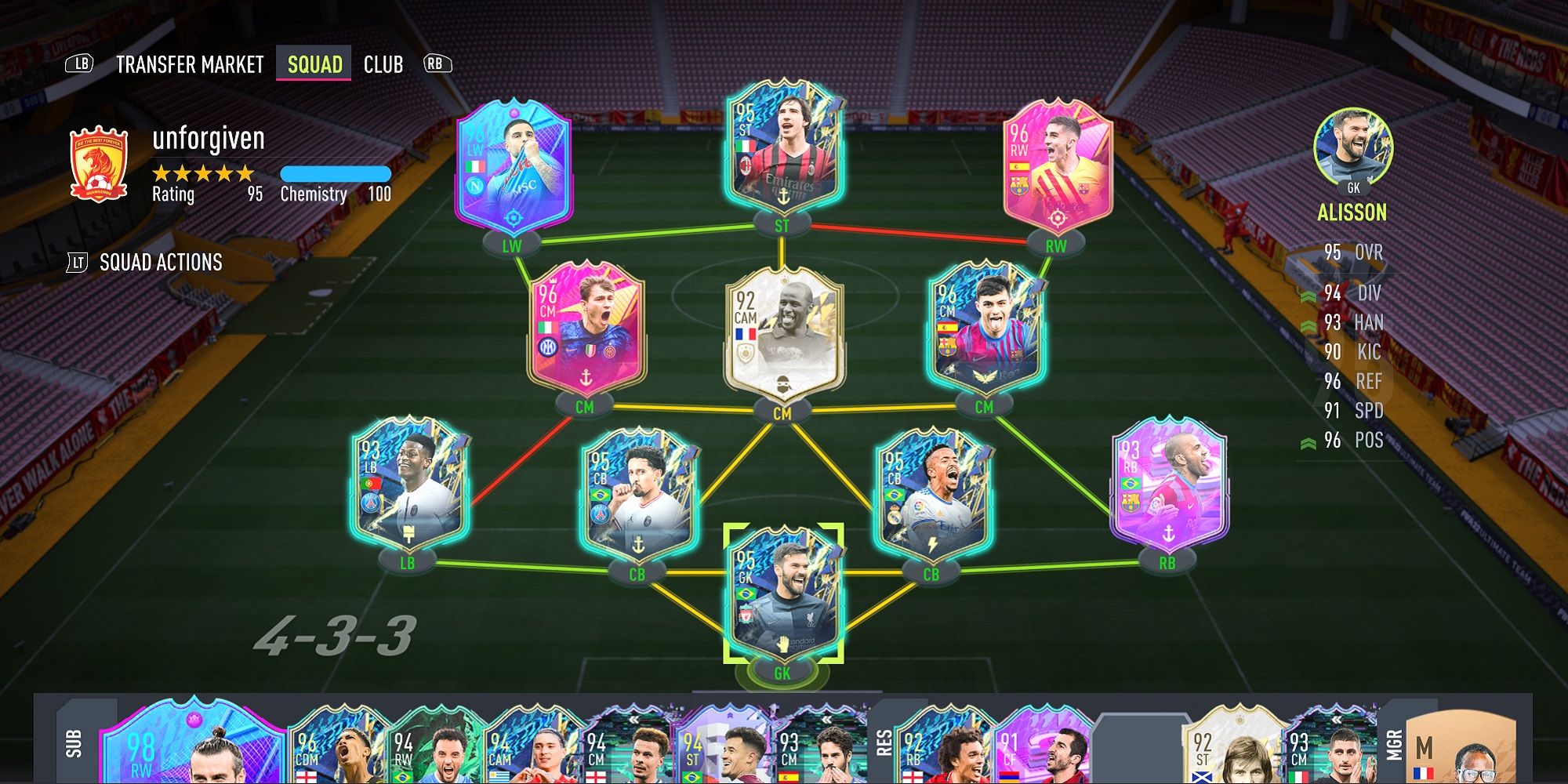During my review of FIFA 23, I mentioned several times that it seemed like EA was treating it like a live-service game; both in how the embargoes were rolled out and in how the game presents itself. There is one crucial distinction here though, and that is that for all it walks like a duck and quacks like a duck, it charges you £70 each year for a fresh release that completely resets your progress like a stand-alone title. This is the last FIFA ever as the naming rights license comes to an end, so it presents a unique opportunity for EA – should the next FIFA, or rather the first EA Sports FC, transform the game into a live-service title?
There are some obvious reasons why not to. People still buy it every year, and by completely resetting their progress in Ultimate Team, EA is assured of constant player investment. I don't usually make it my business to comment on what the best profit strategy is when it comes to video games. I'm aware these are commercial ventures, but I'm never going to take the position of siding with a method that makes life worse for everyone purely because it makes money. What's more, I'm not even sure that would need to change.
I have no idea how much EA makes in raw FIFA sales each year. The profit numbers are almost always discussed in terms of total revenue which includes Ultimate Team – £1.15bn in 2020. This includes Madden and EA's other sports titles, but the lion's share is made by FIFA. That FIFA is currently the only game in town means EA has no pressure to change things up in order to compete, but the name change means 30 years' worth of brand recognition is about to disappear. If I asked my grandparents to name a video game, I think FIFA and Pokemon might be the only two they could. We have no idea how much of an impact the loss of the FIFA license will have, but live-service could be a way to weather that storm.
Obviously, this version of the game will remain standalone, so let's look ahead to how next year's could work. FIFA has always had a bit of an issue with launching behind the new season. By the time the game launches, we're already a few weeks deep into the fixture list. In a World Cup or Euros year (this year's one-off winter tournament notwithstanding), excitement for football is at its peak, but FIFA is fading away – and that's an even bigger problem with Ultimate Team when you know your progress is about to be reset.
EA has had major success with evolving live-service games. Apex Legends has remained consistently popular through episodic roll-outs, as have several other titles at different studios. EA has been burned before though, through Anthem, while sports titles have traditionally seen a great deal of success through yearly launches. It's a risk, but if EA is building its entire gameplay and marketing around FIFA Ultimate Team, we need to start asking questions about this approach. When Ultimate Team was but one part of FIFA, a new game every year made sense, or at least as much as it could for a sports title where the gameplay improvements are doomed to be minor. Yearly launches give you a chance to start your Career Mode over, and meant squads, kits, and leagues could be updated year on year. These days, we get squad updates every ten minutes, and most games have patches that are far less involved than a kit update.
Having FIFA, or whatever the name is, be a live-service game also provides a lot of opportunity. From a player perspective, it only seems ethical to not make over a billion off them in fake cards each year, only to then rip all the cards up and tell them to start again, but even away from that, it's also more efficient. Because EA currently needs to convince people to buy a new game each year, it needs to spend a lot of time and money on gameplay improvements – HyperMotion2 is this year's addition. But these aren't often worth the development time and costs, and with a live-service game, more time could be spent on reacting to individual issues, fine-tuning gameplay, rolling out and developing new modes, and generally rounding the game out a little.
Right now, FIFA is Ultimate Team with a couple of superfluous modes glued on with no rhyme or reason. Making it live-service means a greater focus on Ultimate Team, the popular money maker, while also allowing the game to grow in depth as work on the 'next instalment' does not need to be a constant attempt to paint the Forth Bridge. FIFA is making money now, but it is at risk of being left behind. The game has always been a trendsetter, and as it leaves the FIFA name in the past, maybe it's time to set another.
Source: Read Full Article

